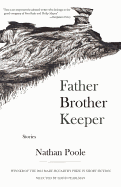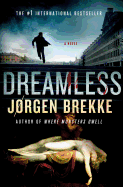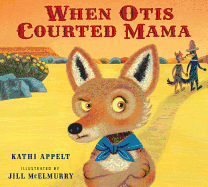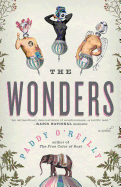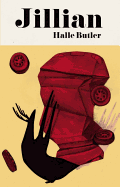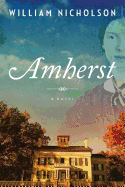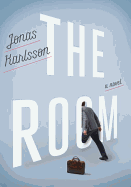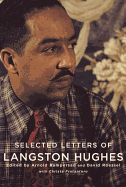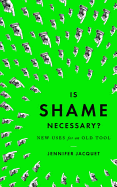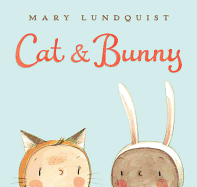Tuesday, February 17, 2015
For David Carr, the reporter, editor and media columnist who died last Thursday at age 58 after collapsing in the news room of his beloved New York Times, perhaps the biggest story of his career was his own story: in the 1980s, the talented journalist descended into crack addiction, alcoholism and "mania" so severe that it ruined much of his life and nearly killed him. 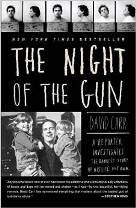 Carr recounted that harrowing period in his 2008 memoir, The Night of the Gun (Simon & Schuster has just gone back to press for another printing of 10,000), a book distinguished from other "recovery" titles because Carr approached his story the way he would any other: by researching, by interviewing pertinent people--and following the trail no matter where it went or how ugly it became.
Carr recounted that harrowing period in his 2008 memoir, The Night of the Gun (Simon & Schuster has just gone back to press for another printing of 10,000), a book distinguished from other "recovery" titles because Carr approached his story the way he would any other: by researching, by interviewing pertinent people--and following the trail no matter where it went or how ugly it became.
Among the highlights of this low period: Carr left his twin daughters, at age eight or nine months, in his parked car when he went into a house to score some crack--and stayed for several hours, getting high and having no idea what he'd find when he returned to the car. Perhaps the most telling story is the one referred to in the title: as part of his research for the book, Carr interviews an old friend who once drew a gun to scare off an enraged Carr. To his astonishment, Carr learns that the old friend didn't brandish the gun--it was Carr himself.
Memory, Carr discovered, is selective, particularly regarding one's own traumatic moments. His own story turned out to be darker than he remembered, and only with the great help of friends and family was Carr able to turn his life around, kick cocaine, get off welfare, raise his daughters as a single dad--and find happiness for a time as a journalist's journalist, living in suburban New Jersey, remarried, with three children and a dream job at the New York Times.
What a story--and memory. --John Mutter, editor-in-chief, Shelf Awareness
Father Brother Keeper
by Nathan Poole
Nathan Poole's debut collection of short stories, Father Brother Keeper, won the Mary McCarthy Prize in Short Fiction and is an emotionally evocative and varied experience. Each tale is a miniature masterpiece of perfect, often tragic realism, featuring men, women and children dealing with everyday trials: illness, death, divorce, financial hardship.
An old man fights his dementia--"he was losing traction"--when his estranged daughter leaves her two small children with him and drives away. A young man finds more than a dozen bait dogs (fight dogs past their prime) abandoned on his family's property and accuses the wrong man of the brutality. Two brothers react in different ways toward their mother after their father leaves. Two young neighbor girls who are friends contract the same illness but with different outcomes; mapping this divergence is a challenge for each family.
Though perhaps simple in their subject matter, each story is weighty in its emotional impact, sharp and poignant. The stories all feature people living simply, accommodating change if not embracing it, and struggling to move forward through whatever life hands them. Poole's voice is original, authentic and stark; he is clearly compassionate toward his characters even as he walks them through terrible everyday calamities. Father Brother Keeper is a slim book but one that demands to be read slowly and thoughtfully, so that the hints of redemption can percolate. Meticulous, gorgeous and brooding, these stories will appeal to connoisseurs of the short story as well as fans of traditional Southern ways of life and literary fiction. --Julia Jenkins, librarian and blogger at pagesofjulia
Discover: This memorable collection of reflective short stories about commonplace tragedies showcases a gentle, painstakingly accurate writing voice.
The Wonders
by Paddy O'Reilly
While carnival freaks may be an antiquated, even offensive, concept in the 21st century, Paddy O'Reilly (The Fine Color of Rust) explores what it would mean to be a "modern marvel." A producer brings together three peculiar individuals to form The Wonders: protagonist Leon, owner of a metal heart, finds himself plucked from his quiet life in Australia and thrust into the world of international celebrity once he's joined with Christos, who has surgically connected wings to his back, and Kathryn, whose skin is covered with wool. With money and fame come both the chance to rebuild Leon's fragile ego and increasingly dire threats against their lives from those who believe The Wonders are insults to humanity.
O'Reilly takes a very deliberate pace with The Wonders, following Leon and his comrades as they plan to put on their version of "the greatest show on earth." The behind-the-scenes aspects of the book are its most engaging parts, mixing fish-out-of-water comedy with the tension over whether or not Leon will succeed in his performance as the "Clockwork Man." But the stakes never really feel that high, until a rushed and tonally jarring ending places the main characters in mortal danger. It's one slight misstep, though, in an otherwise pleasurable book concerned with the (mechanical) workings of one man's heart. --Noah Cruickshank, marketing manager, Open Books, Chicago, Ill.
Discover: A whimsical story of celebrity, trauma and self-acceptance on a curious and improbable stage.
Jillian
by Halle Butler
In suburban Chicago, Ill., two women work side by side as medical receptionists. Jillian, Halle Butler's debut novel, traces both the unraveling life of one of those women and the other woman's delight in her office partner's downfall. When wounds in each of their lives open, both women are bound together in a downward spiral of shame, regret and sorrow, eventually discovering renewal.
Jillian decides that the one thing missing in her life is a puppy for her son, but then her money problems worsen. Taking care of her son, her new pet and her career prove too much for her. Her strained relationships at church crumble when she calls in every favor she can. Lies she tells to maintain her image as a God-fearing Christian spin out of control. All of this excites Megan, who always loathed Jillian's naïve optimism, but Megan's boyfriend is uncomfortable with how much she enjoys the other woman's struggle. Megan's friends soon start to pull away from her spiteful vortex, and the lies she tells herself to cope with these betrayals begin to parallel Jillian's in unexpected ways.
Butler weaves together two very different lives, seamlessly volleying one character's successes off another's failures. In this spare book, the experiences of these women continue to bounce off one another until the distance between self-doubt and self-confidence is quickly diminished. Jillian's misplaced goodwill shines an uncomfortable light on Megan's unfulfilled life, while Megan's youth and opportunity, in turn, chip at Jillian's idealism. Finally, both realize that the hardest lies to maintain are the lies they tell themselves. --Joshua Potter
Discover: In this apathetic suburb, immediate satisfaction is merely a distraction and future opportunities don't come fast enough.
Amherst
by William Nicholson
Love and romance reside at the heart of British author William Nicholson's work, be it in his screenplays (Shadowlands) or in his prose fiction (Motherland). In his historical novel, Amherst, he crafts two love stories--past and present--centered on the poet Emily Dickinson and her vivid impact on other lives.
Nicholson threads the needle of his intriguing, well-plotted narrative with Alice Dickinson, a contemporary 20-something London copywriter whose shared last name with the poet draws her to Emily's work. Alice travels to Amherst, Mass., to research a screenplay she's writing about the real 1880s love affair between Austin Dickinson, Emily's 50-year-old, unhappily married brother, and Mabel Loomis Todd, the 24-year-old wife of an Amherst College professor. Once Alice arrives in the U.S., she boards in the home of Nick Crocker, a handsome, married, charismatic English Literature academic in his 50s. Alice's research into the mysteries of love, fidelity and passion is soon complicated when she and Nick begin an affair that ultimately parallels the intense complexity found in Austin and Mabel's relationship, which was secretly consummated in the home that Emily Dickinson shared with her younger sister, Vinnie.
These tender, revealing love stories are told via alternating chapters. Nicholson draws from historical texts and includes letters along with Dickinson's poems to re-create the longstanding affair between Austin and Mabel--and the significant role that Emily, an enigmatic spinster-recluse, played in their romance, as well as how Emily's ghost permeates the relationship between Alice and Nick. --Kathleen Gerard, blogger at Reading Between the Lines
Discover: Two secret love affairs--past and present--come together under the influence of poet Emily Dickinson.
The Room
by Jonas Karlsson
"The first time I walked into the room I turned back almost at once."
From this skillfully subtle opening line, the titular room is spotlighted as the crux of a strange and surreal tale. Björn, the first-person narrator of Jonas Karlsson's The Room, is odd from the first, but we take him at his word: he is good at his bureaucratic job, perhaps not well-liked by his fellows, but effective and ambitious.
On the other hand, there is the room. Björn discovers it by accident while looking for the toilet. It is a lovely space, a perfectly appointed, perfectly proportioned, old-fashioned, classy office. He catches sight of himself in the mirror, and is struck by how good he looks, despite not usually feeling that he is attractive, or even worrying about such things. Björn begins visiting the room regularly, and a problem arises. His coworkers see him standing in a particular spot, along the hallway on the way to the toilets. They don't see the room; the room doesn't exist on architectural plans or for anyone else.
There are several levels to the uncomfortable probing Karlsson undertakes throughout Björn's odd tale, sketching larger doubts about the subjectivity of reality, social graces and the importance of control over different aspects of our lives. Karlsson's prose and the inventiveness of Björn's surreal mental workings are often funny, but the overall impact is also deeply thought-provoking and profoundly disquieting, and the combination of the banal and the absurd results in a striking and singular read. --Julia Jenkins, librarian and blogger at pagesofjulia
Discover: A slim book with a large footprint that poses questions about the nature of truth and the value of defining one's own work and life.
Mystery & Thriller
Dreamless
by Jørgen Brekke, transl. by Steven T. Murray
Ever since the blockbuster success of Stieg Larsson's trilogy, American shelves have been awash with a tidal wave of Nordic noir. Authors like Mankell and Nesbø prove there are pearls in that surf, and readers can count Jørgen Brekke's Dreamless, the second book in his Odd Singsaker series (Where Monsters Dwell), among them.
The dual time periods in Dreamless add a twist that will enliven mystery fans weary of formulaic plots. Eighteenth-century police chief Nils Bayer is delightfully foul and filthy. He's trying to find the killer of Wingmark, an intrepid troubadour with a penchant for dice games. Meanwhile, in modern-day Trondheim, Norway, Chief Inspector Odd Singsaker has his own murders to solve. A vicious serial killer is murdering young women in a gruesome way--he removes the victims' larynxes and leaves behind music boxes that play only a single piece of mysterious music.
In addition to hunting a sadistic murderer, Singsaker is struggling to recover from the removal of a brain tumor, which took place in the first Singsaker book--both with the help of his American wife, Detective Felicia Stone. The meat of the mystery revolves around an elusive folk ballad from the 1700s, "The Golden Peace," rumored to have the power to lull even the most troubled soul to sleep--but only if sung by the right voice. Brekke uses this enigmatic song in a compellingly layered novel to wind up music boxes as well as the reader. --Tom Lavoie, former publisher
Discover: This fine, discordantly dark thriller is the second installment of Brekke's Norwegian mystery series starring the quirky Inspector Singsaker.
Food & Wine
Virgin Territory: Exploring the World of Olive Oil
by Nancy Harmon Jenkins
When Nancy Harmon Jenkins (The New Mediterranean Diet Cookbook) purchased an abandoned farm on a hillside in Tuscany in the late 1960s, she didn't realize she had embarked on a lifelong inquiry into one popular Mediterranean food. Virgin Territory: Exploring the World of Olive Oil is a fascinating compendium of all her hard-earned knowledge, distilled into manageable bites that cover every aspect of oil production and usage. Jenkins narrates the historical evolution of olive oil from pre-biblical times to the present, explains the process by which olives become oil, discusses the qualities of good and bad oils and includes interviews with oil producers.
She traveled the world visiting the various regions that grow olives to make oil, and includes more than 100 Mediterranean dishes that feature this unctuous staple. These include simple recipes--Sicilian fried almonds, epityrum (a sort of caper-free tapenade from ancient Rome) and oven-roasted kale--as well as more complex dishes, such as veal shoulder with caper-anchovy sauce and Lebanese lamb-and-bulgur meatballs.
Jenkins believes that olive oil can be used in almost any recipe that "calls for fat, whether butter, lard, coconut oil, or some more esoteric substance," and she provides conversion tips that allow readers to modify their own recipes to use extra-virgin olive oil in everything. But, she cautions, "regular olive oil, light olive oil, or--perish the thought--pomace oil has no place in any kitchen that is dedicated to creating healthful, delicious food. Only extra-virgin will do." After reading Jenkins's informative analysis and trying her recipes, readers will agree. --Lee E. Cart, freelance writer and book reviewer
Discover: An informative and enjoyable assessment of olive oil, complete with delicious recipes and colorful photographs.
Biography & Memoir
Screening Room: Family Pictures
by Alan Lightman
The death of an elderly uncle prompts Alan Lightman (The Accidental Universe) to return to Memphis four decades after he headed north to college at Princeton, and the reminiscences that loss inspires are the foundation of his elegiac memoir, Screening Room: Family Pictures. Towering over this family story is the figure of the grandfather he idolized, Maurice Abraham Lightman, known as M.A., who built a chain of 63 movie theaters in seven Southern states while establishing himself as a world-class bridge player and womanizer. Lightman's depiction of his parents is a touching but honest one, capturing the pathos of two mismatched people who somehow endured a lengthy marriage. He movingly shares scenes with his 90-year-old father in the nursing home where his life draws to an end.
As much as this is a family story, it also deals frankly with Memphis's troubled racial past. Lightman grew up in the 1950s and '60s in a city that was every bit as benighted in its views on racial equality as any town in the deepest of the Deep South. He describes his father's role in quietly desegregating the family's Memphis movie theaters and offers a sympathetic portrait of the family's maid, Blanche, while confessing the bell he inherited that was "pure music" when it summoned her in his childhood now "cuts like a knife."
Lightman's memories flicker like the light from an old movie projector he meticulously describes in one of the book's many artfully constructed scenes. Like his incomparable novel Einstein's Dreams, this memoir is, at its core, a tender meditation on the passage of time. --Harvey Freedenberg, attorney and freelance reviewer
Discover: The tender and frank story of Alan Lightman's return to his roots in Memphis, Tenn.
Selected Letters of Langston Hughes
by Langston Hughes, edited by Arnold Rampersad and David Roessel with Christa Fratantoro
Langston Hughes called himself "the world's worst letter writer," though according to the introduction of Selected Letters of Langston Hughes, he wrote enough of them to fill "almost 20 large volumes." Like many famous authors, he was overwhelmed by a tidal wave of correspondence. Letters stacked his tables, slid over his bed and commandeered his sock drawer.
Literary scholars Arnold Rampersad (The Life of Langston Hughes), David Roessel (In Byron's Shadow) and Christa Fratantoro have chosen a representative sample of Hughes' letters as "an epistolary companion to the life story Hughes tells in his autobiographical works." They are grouped in sections by decade, each with a concise biographical introduction. Here is bold, generous, open-minded Langston Hughes, from age 19 to 65, achieving spectacular literary success despite endless obstacles and setbacks. He is known for his part in the 1920s Harlem Renaissance, but that was one stage in his long and staggeringly prolific career.
Celebrities like Countee Cullen, Carl Van Vechten, Zora Neale Hurston and Amiri Baraka appear throughout the collection. There are a handful of love letters and many intimate ones to friends, but business, leftist politics and shoptalk dominate. Hughes is charming, funny, passionate in his loves and his outrages, but always diplomatic and always serious about work. His younger letters show some insecurity, but it never slows him for long. He turns out groundbreaking work in nearly every literary form, pursues new relationships throughout his life and travels the world, charging through life with extraordinary confidence and optimism. --Sara Catterall
Discover: Langston Hughes's adventurous life as a working writer through his own letters.
Social Science
Is Shame Necessary?: New Uses for an Old Tool
by Jennifer Jacquet
In Is Shame Necessary, Jennifer Jacquet argues that shame can be an effective tool to change harmful social, economic and environmental practices. Shame's effectiveness, she posits, relies on a number of factors, including audience, focus and implementation. But not everyone has the ability to wield this old tool; used poorly, it can be counter-productive.
Jacquet--a professor of environmental studies at New York University--provides many examples, among them a public shaming campaign against the tuna-fishing industry for the mass killings of dolphins in tuna nets. The voluntary "dolphin-safe" practices (better nets that reduced the number of dolphins caught and killed) put the focus of fixing the problem on individuals who could boycott tuna and only roundaboutly on the groups engaged in the damaging practice. Because the standards were voluntary, the impact was small until the later enactment of federal regulations mandating dolphin-friendly fishing.
When it comes to large-scale problems, Jacquet says, shame needs to come from a source of influence. A successful example was the state of California's threat to publish a list of the top 500 business tax delinquents. Those who paid their outstanding taxes were taken off the list before publication. The state has recovered approximately $301 million in unpaid taxes since 2007 as a result.
Jacquet offers guidelines to use shame as an instrument for good, and provides concrete examples for how American society can use public shaming to ensure it remains an effective tool. --Justus Joseph, bookseller at Elliott Bay Book Company
Discover: An investigation into how shame can be harnessed to enforce new norms necessary for the continued healthy existence of societies.
Children's & Young Adult
Cat & Bunny
by Mary Lundquist
Endearing portraits of young children in animal attire will immediately win over readers in Mary Lundquist's debut tale of the ups and downs of friendship.
The endpapers introduce a cast of characters decked out as dinosaurs, quails, honeybees, giraffes and more (plus a cameo of a real kitten). At first, it's just Cat and Bunny, who "were born on the same day of the same month in the same year." The pencil-and-watercolor illustrations trace their bond from toddlerhood to tricycle-riding. Lundquist envisions a safe world of unsupervised play. Cat and Bunny pack up picnic lunches and make forts from bedsheets al fresco. "Friends forever!" says Bunny. "Just us!" cries Cat, as they transform into caped superheroes. In the park, they play "the Made-Up Game... and only they knew the rules to it." But one day, Quail asks, "Can I Play?" Bunny says yes, without consulting Cat, and a rift grows. As more children join in, Cat runs away. Lundquist's illustration captures Cat's disappointment as she discards a leaf and makes tracks. But the tables are turned when a kitten with a ball of yarn befriends Cat. Together they create their own "Made-Up Game," and soon others are asking Cat to join. "Of course!" says she.
Bunny brings Cat her leaf as a peace offering, and all is right with the world. Lundquist gets the dynamics of first friendship just right. --Jennifer M. Brown, children's editor, Shelf Awareness
Discover: Two friends weather the bumps of enlarging their circle, from a promising first-time author-artist.
When Otis Courted Mama
by Kathi Appelt, illus. by Jill McElmurry
With the singing rhythms of her Bubba and Beau series, Kathi Appelt introduces endearing Cardell, a coyote pup with a "perfectly good mama and a perfectly good daddy." All is well, until Otis comes along.
Jill McElmurry's (The Tree Lady) gouache compositions in desert tones spotlight the "perfectly good" parents with their pup. Vignette illustrations of Cardell's daddy flipping jalapeño flapjacks, playing "Zig-the-Zag" across the sand, and singing with his son by moonlight portray their special relationship. The only trouble is that Cardell's father lives on one side of the desert, and his mother on the other. A panoramic view of Cardell and his mama scouting gives way to a close-up of them at their easels. Author and artist present a well-adjusted child who loves both parents equally. Cardell likes his stepmother and stepbrother, too. "But all of that was before Otis, their new neighbor, showed up at their door." Appelt describes his mama's previous suitors through Cardell's eyes, and readers will immediately observe, by contrast, Otis's kind eyes and thoughtful manner. Though Cardell GRRRs ("He put Otis on notice"), Otis persists with a batch of prickly pear pudding, an impressive show of pouncing, and tales of horned toads and "little coyotes with big GRRRs" until Cardell's fades away.
Visual and verbal echoes of happy scenes foreshadow Otis making his way slowly not only into Cardell's mama's heart, but into the pup's heart, too. This lilting tale will reassure readers adjusting to new family arrangements that, "sticker burs and sand fleas aside," they will be okay. --Jennifer M. Brown, children's editor, Shelf Awareness
Discover: Cardell the coyote pup and his "perfectly good" separated parents slowly welcome a new member to the family.


